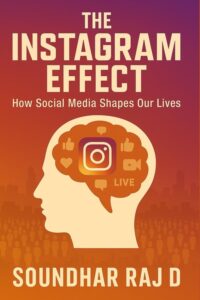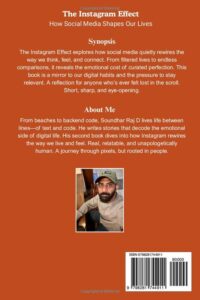We live in an age of unprecedented access to information, yet we seem to be drifting further from truth than ever before. The culprit? Our insatiable hunger for validation has quietly eclipsed our pursuit of what is real, what is accurate, and what is true.

The Validation Trap
Imagine standing at a crossroads. One path leads toward uncomfortable truths that challenge your worldview, forcing you to admit you were wrong, to change your mind, to confront cognitive dissonance. The other path leads toward warm affirmation, nodding heads, and the comforting echo of your own beliefs reflected back at you.
Which do you choose?
If you’re honest with yourself, you know the second path feels better. It always does. This is the validation trap, and we’re all susceptible to it.
Seeking validation isn’t inherently malicious. It’s deeply human. We are social creatures who evolved in small tribes where group cohesion meant survival. Being ostracized could be a death sentence. Our brains are literally wired to seek approval and avoid rejection. But what served us well on the savannah has become a liability in the information age.
The Social Media Amplification Effect
Social media has weaponized our need for validation. Every platform is engineered to give us precisely what we want to see, precisely what makes us feel good, precisely what keeps us scrolling. The like button, the retweet, the share—these are validation delivery mechanisms more potent than anything our ancestors experienced.
When you post an opinion online, you’re not really seeking truth. You’re seeking agreement. You’re seeking that dopamine hit that comes when someone validates your perspective. And the algorithms know this. They learn what makes you engage, what makes you feel validated, and they serve you more of it. The result? We’ve constructed personalized reality bubbles where our beliefs are constantly reinforced and dissenting voices are filtered out.
The danger here is subtle but profound. When we exist in these echo chambers, we begin to conflate popularity with truth. If thousands of people agree with me, I must be right. If my post gets shared widely, my view must be correct. But truth has never been democratic. Reality doesn’t bend to consensus. The earth was never flat, no matter how many people believed it to be.
The Cost of Validation-Seeking
When we prioritize validation over truth, we stop asking difficult questions. We stop genuinely engaging with opposing viewpoints. We stop updating our beliefs in light of new evidence. Instead, we become intellectual stagnation personified.
Consider the last time you encountered information that contradicted something you believed. What was your first instinct? For most of us, it’s defensive. We look for reasons to dismiss the information, to discredit the source, to explain it away. This is motivated reasoning—the process of deciding what we want to believe and then working backward to justify it.
Someone seeking truth asks: “What does the evidence actually show? Could I be wrong? What would change my mind?” Someone seeking validation asks: “How can I dismiss this? Who else agrees with me? How can I prove I’m right?”
The validation-seeker cherry-picks data, ignores context, and commits logical fallacies without remorse. They don’t care if their argument is sound; they care if it’s persuasive to those already inclined to agree. They’re not building understanding; they’re building a fortress against uncertainty.
The Political Polarization Problem
Nowhere is the validation-over-truth dynamic more destructive than in politics. Modern political discourse has become less about policy and more about tribal identity. We don’t evaluate politicians based on the accuracy of their claims or the wisdom of their proposals. We evaluate them based on whether they’re on our team.
When a politician from “our side” is caught in a lie, we make excuses, rationalize, or simply ignore it. When a politician from “their side” does the exact same thing, we’re outraged. This isn’t principle. This is pure validation-seeking dressed up as political engagement.
The result is a political landscape where truth is irrelevant. Politicians lie brazenly because they know their supporters will defend them anyway. Fact-checkers are dismissed as biased. Empirical reality becomes just another opinion. And we, the citizens, become increasingly unable to have productive conversations across ideological lines because we can’t even agree on basic facts anymore.
We’ve reached a point where people will believe demonstrably false things simply because believing them signals loyalty to their tribe. Flat earth? QAnon conspiracy theories? Election denial despite no evidence? These beliefs persist not because they’re supported by evidence, but because they validate group membership and identity.
The Personal Consequences
The costs of validation-seeking extend beyond politics and social media into our personal lives. When we surround ourselves only with people who agree with us, when we dismiss criticism as “hate,” when we refuse to examine our own flaws, we stunt our growth as human beings.
Personal development requires discomfort. It requires confronting truths about ourselves that we’d rather ignore. The alcoholic must admit they have a problem. The toxic partner must face their behavior. The underperformer must acknowledge their shortcomings. None of this feels good. All of it requires prioritizing truth over validation.
But when we live in a culture that tells us we’re perfect just the way we are, that any criticism is “toxic,” that our feelings are what matter most, we lose our capacity for honest self-assessment. We become fragile, unable to handle feedback, and convinced that anyone who challenges us is attacking us.
This creates a generation of people who are simultaneously supremely confident and deeply insecure. Confident because everyone validates them constantly. Insecure because deep down, they know they’ve never truly tested their beliefs or abilities against reality.
The Epistemic Crisis
We are living through an epistemic crisis—a crisis of knowing. We can no longer agree on what constitutes a reliable source, what counts as evidence, or even what truth means. And this crisis stems directly from our collective choice to value validation over truth.
When feelings matter more than facts, when personal truth supersedes objective reality, when being right matters less than feeling right, we lose our shared grip on the world as it actually is. And a society that cannot agree on reality cannot function.
Conspiracy theories flourish in this environment. Misinformation spreads like wildfire. Demagogues thrive. And we, the people who value validation over truth, are complicit in our own deception.
Science and the Validation Problem
Even science, our most reliable method for discovering truth, is not immune to validation-seeking. Publication bias means that studies confirming existing beliefs are more likely to be published than those challenging them. Researchers are incentivized to produce positive results that advance their careers rather than null results that advance knowledge.
The replication crisis in psychology and other fields reveals how validation-seeking has compromised scientific integrity. Researchers p-hacked their data, ran multiple analyses until they found something significant, and published flashy findings that couldn’t be replicated. Why? Because novel, confirmatory results got published, got cited, and got them tenure. Truth was secondary to career advancement.
And when it comes to consuming science, the average person cherry-picks studies that confirm their pre-existing beliefs while dismissing those that don’t. We treat the scientific literature like a buffet, taking what we like and leaving the rest, rather than honestly weighing the preponderance of evidence.
The Path Forward
So what’s the alternative? How do we escape the validation trap?
The answer lies in intellectual humility—the recognition that we might be wrong, that our knowledge is limited, that others might have insights we lack. Intellectual humility doesn’t mean having no convictions. It means holding those convictions loosely enough that they can be updated in light of new evidence.
Here are practical steps toward prioritizing truth over validation:
Actively seek out opposing viewpoints. Don’t just expose yourself to them—genuinely engage with the strongest versions of arguments you disagree with. Steel-man rather than straw-man. If you can’t articulate why someone intelligent might disagree with you, you don’t understand the issue well enough.
Interrogate your sources. Ask not just whether something confirms what you believe, but whether it’s actually true. Who’s making the claim? What’s their evidence? What are their incentives? Would I believe this if it contradicted my views?
Embrace being wrong. Changing your mind isn’t weakness; it’s growth. Every time you update your beliefs based on evidence, you’re getting closer to truth. Celebrate that rather than defending outdated positions out of pride.
Distinguish between feelings and facts. How you feel about something has no bearing on whether it’s true. Your anger doesn’t make a claim accurate. Your comfort doesn’t make a belief correct. Reality exists independent of your emotional response to it.
Build relationships across ideological lines. If everyone you know agrees with you, you’re in an echo chamber. Seek out friendships with people who see the world differently. You’ll either sharpen your views or change them—both are valuable.
Practice saying “I don’t know.” Admit when you’re uncertain. Admit when you lack expertise. Admit when an issue is complicated and you haven’t fully figured it out. This honesty is the foundation of truth-seeking.
The Hard Truth
Here’s the uncomfortable reality: seeking truth is harder, lonelier, and less rewarding in the short term than seeking validation. Truth doesn’t care about your feelings. Truth won’t give you likes and retweets. Truth might alienate you from your community. Truth might force you to abandon beliefs you’ve held your entire life.
But truth is also the only foundation for genuine understanding, meaningful relationships, and a functional society. Validation gives you comfort; truth gives you accuracy. Validation maintains your ego; truth develops your character. Validation feels good; truth makes you good.
Choose Your Path
We return to the crossroads. The path of validation is well-trodden, smooth, and inviting. You know where it leads—to increasing polarization, intellectual stagnation, and epistemic chaos. The path of truth is rocky, steep, and uncertain. You don’t know exactly where it leads, but you know it points toward reality.
Which will you choose?
The question isn’t whether you value truth. Everyone claims to value truth. The question is whether you value truth more than the comfortable fiction, more than the tribal belonging, more than being right, more than feeling good.
To seek truth or to seek validation—that is the question. And how you answer it will determine not just what you believe, but who you become.
Hey there! We hope you love our fitness programs and the products we recommend. Just so you know, Symku Blog is reader-supported. When you buy through links on our site, we may earn an affiliate commission at no extra cost to you. It helps us keep the lights on. Thanks.
Disclaimer: The information provided in this discussion is for general informational and educational purposes only. It is not intended as medical or professional advice. Only a qualified health professional can determine what practices are suitable for your individual needs and abilities.


